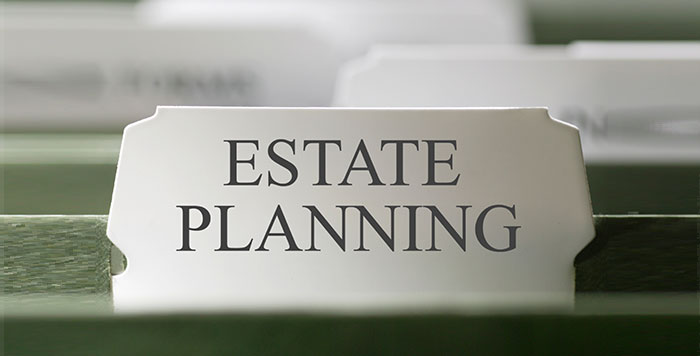Beyond the Living Trust: A 9-Point Check List for Estate Planning
-
TaxWealth
-
Mar 01, 2020

With death comes taxes, at least for those who don’t plan their estate properly. But while some taxes are inevitable, exactly how much and when you pay them is not. Indeed, with proper estate tax planning, the total due and the payment date for taxes on inherited assets can move well off into the future.
To achieve this in estate tax planning, you must take action now. And it involves a whole lot more than just having a living trust. Work with your tax planning professional to use all the tax and estate laws to your advantage. Tax planning techniques exist, for instance, that “stretch” the due date on inherited retirement accounts to the benefit of your heirs.
For effective tax planning, focus on these nine points to protect your estate:
Settlement
A tremendous amount of administration, finding assets and paperwork is required when someone dies. Plus, with estate planning, you create the plan but someone else executes it! The key is to make as many decisions while you are alive and arrange financial affairs and asset ownership in ways that makes the transition less challenging (and challengeable!) for your heirs.
Costs
Funeral expenses are unavoidable, but effective estate planning can eliminate Probate and minimize or eliminate estate taxes. A proper estate planning process forecasts any taxes that would be due, identifies any other unwanted expenses that might crop up if not planned for, and finds solutions to cover or eliminate these financial gaps.
Money Management
How should your heirs receive the inherited assets, and will these assets take care of their needs as you hope? For example, you may have quite a bit of value in raw land. When you die, your spouse inherits the property—along with the debt you have been carrying on it, if any. If you want this managed a particular way, you need to be very specific in how you set up ownership. And where is the money going to come from to pay for ownership expenses (maintenance, taxes, etc.)?
Guardianship
Control whom you want as your children’s guardians until they are 18. Unless this is properly set up, the State decides who will care for your kids. This also involves addressing the future financial needs of minor and adult children if they are mentally or physically challenged.
Distribution
One general rule in my estate planning is that siblings make lousy business partners, and managing inherited assets throws them into “business” together. Most of estate plans I am asked to review divide all the assets equally among the children. In my experience, the majority of such estate plans unintentionally encourage your hard-earned assets to end up outside the family blood lines due to a child’s premature death, divorce, lawsuits and/or sibling rivalry. These risks can all be eliminated with proper planning around who gets what.
Estate Freeze
A conflict naturally exists between your desire to keep growing your estate while you are alive, and your wish to shield some of that rising value from the IRS to benefit your heirs. Good planning forecasts whether your assets could be exposed to tax and investigates options to lower those values for tax purposes. Many of these tax-advantaged solutions have to be constructed before you die, so having those conversations now is critical for anyone with a substantial estate.
Asset Allocation and Conservation
Asset Allocation in estate planning answers the question: “Do you have the most effective and efficient tools to do what needs to be done?” For example, if estate taxes must be paid, you should earmark which assets will be most advantageously used to pay the taxes. Another example: Make sure any life insurance you have is not added to your estate, driving up the estate’s total taxable value!
Asset Conservation involves structuring asset registration so you don’t lose assets for silly reasons. Do you hold title in joint tenancy due to the stepped-up-in-basis rules? This may not be the best choice for registration of your assets. Do you own property with one of your children on title but want to transfer your interest to a different child? Assets must be properly titled to avoid capital gains taxes when your heirs sell the property.
Asset Protection
What outside claims against your assets could arise after your death? Can you resolve those while alive to protect your heirs’ inheritance? Can we find solutions that separate potential disputes on one asset from shifting to others?
Long Term Care
The U.S. Department of Health and Human Services estimates that “70 percent of people over the age of 65 will need some type of long-term care services and support during their lifetime.” And with long term care cost growth outpacing the rate of inflation, it is estimated that in 25 years an average-length stay in a private nursing home facility could cost over $800,000. This is a steep cost that most Americans cannot afford.
Your estate could quickly dwindle in value if you don’t plan now for this health and financial need. Appropriate long term care planning can be structured as a part of a multi-tiered emergency fund system tailored to your comfort zone.
It is a wise person who acts to address all these points with your chosen estate planning professional. Take care of each of these questions now and in a manner that you dictate, instead of later on when you are not here and have no control at all.